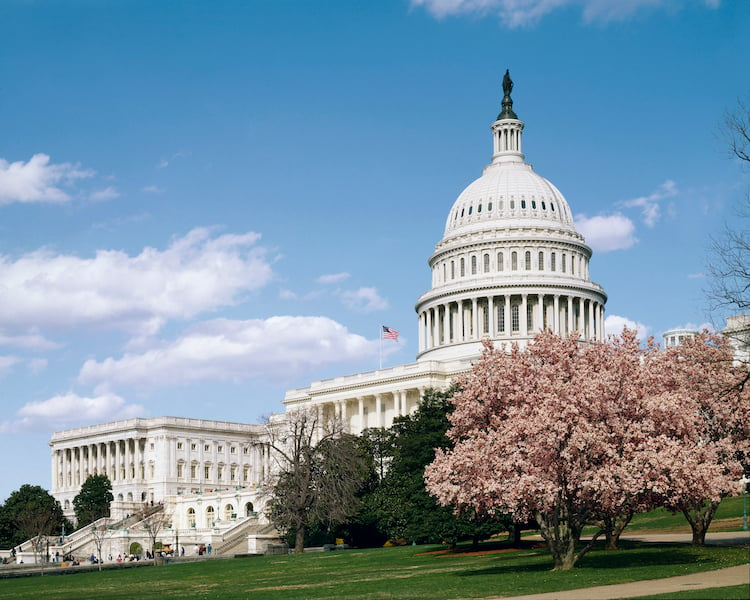
Annual funding for LGBTQ+ services, including mental health and crisis intervention resources for at-risk youth, could be authorized by the Department of Health and Human Services under a proposed bill introduced in the Senate last week. Photo: Photographs in the Carol M. Highsmith Archive, Library of Congress, Prints and Photographs Division
Annual funding for mental health and crisis intervention resources for at-risk LGBTQ+ youth would be available under a proposed bill introduced in the Senate last week.
The Pride in Mental Health Act was introduced Thursday by senators Laphonza Butler (D-California) and Tina Smith (D-Minnesota).
It would close LGBTQ+ mental health information gaps and improve physical and mental health in at-risk LGBTQ+ youth, Butler and Smith said
“Accessing mental health care and support has become increasingly difficult in nearly every state in the country,” Butler, the first Black LGBTQ+ senator, said in a press release. “Barriers get even more difficult if you are a young person who lacks a supportive community or is fearful of being outed, harassed, or threatened.”
“Mental health care is health care. And for some LGBTQ+ youth, receiving access to the mental health care they need can mean the difference between living in safety and dignity, and suffering alone through discrimination, bullying, and even violence,” Smith said.
The Pride in Mental Health Act would authorize the Department of Health and Human Services’ Substance Abuse and Mental Health Services Administration to allocate funding for LGBTQ+ youth services.
The figure would vary every year depending on the amount approved during the appropriations process.
Owasso Public Schools under investigation by Education Department
The press release does not say it, but The Pride in Mental Health Act was introduced the day after the summary report mentioned that Oklahoma nonbinary teen Nex Benedict committed suicide. Benedict died last month, the day after being in a fight with three other students in a high school restroom. Benedict was bullied extensively by his schoolmates.
“The data shows what many parents and educators see every day — an epidemic of students in classrooms dealing with anxiety, depression and other serious mental health conditions, with nowhere to turn,” Smith said. “Meeting LGBTQ+ students where they already are — in school — helps us break down the stigma they might face and get kids the health care they need.”
For example, LGBTQ+ youth experience disproportionate rates of mental health challenges.
- 2023 study from The Trevor Project found that 54%of LGBTQ+ youth reported symptoms of depression, while only 35% of heterosexual youth reported similar feelings.
- LGBTQ+ high school students are also four times more likely to attempt suicide
These discrepancies can be linked to discrimination and lack of a supportive community in schools or at home.
- LGBTQ+ youth who found their school or home to be LGBTQ+ affirming reported significantly lower rates of suicide attempts.
Rates of these challenges have consistently risen over time and have been exacerbated by the pandemic.
- 56% of LGBTQ+ youth have not been able to get the mental health care that they want.
- Fewer than 1 in 3 mental health facilities in the United States provide LGBTQ+ services for adolescents.
- 15% of LGBTQ+ youth even report being threatened with or subjected to conversion therapy
The Pride in Mental Health Act would serve several purposes:
- Award grants to institutions to assess and improve mental health and substance use outcomes for LGBTQ+ youth
- Require eligible entities to use funds for several reasons:
- Provide cultural competency training for caregivers
- Collect data on LGBTQ+ youth’s behavioral health
- Issue guidelines on preventing anti-LGBTQ+ bullying in schools
- Integrate behavioral health services for LGBTQ+ youth in school systems
- Direct the Substance Abuse and Mental Health Services Administration to review and update resources listed on their website that pertain to LGBTQ+ communities
- Commission a report on the mental health outcomes and care of LGBTQ+ youth in foster care and other federal social services programs
- Funds allocated under the act could not be used for conversion therapy
In the House of Representatives, the effort to pass it is led by Democrats Sharice Davids, of Kansas, Eric Sorensen, of Illinois, and Ritchie Torres, of New York, who also identify as part of the LGBTQ+ community.
